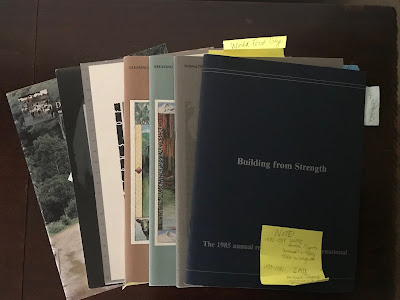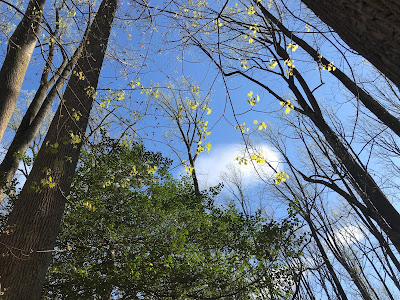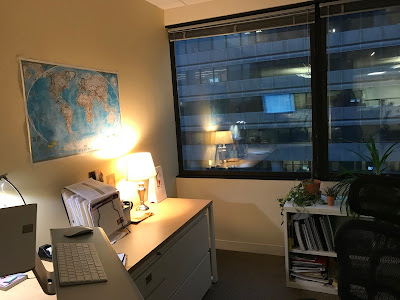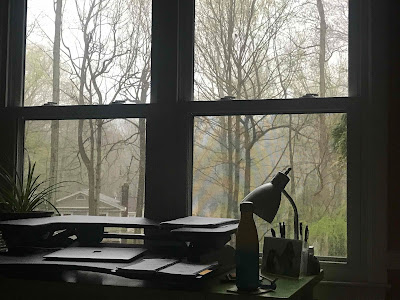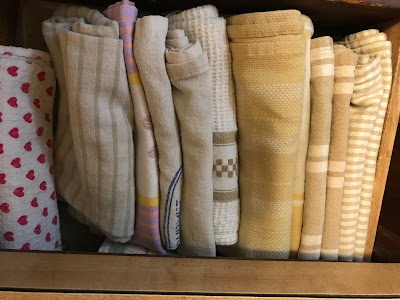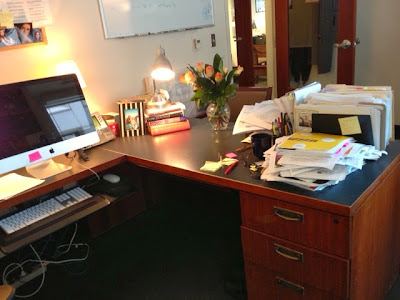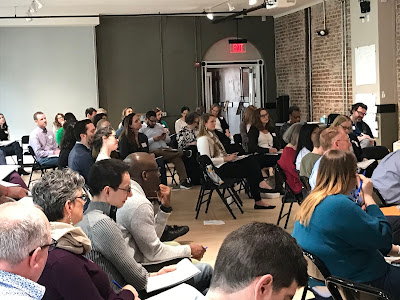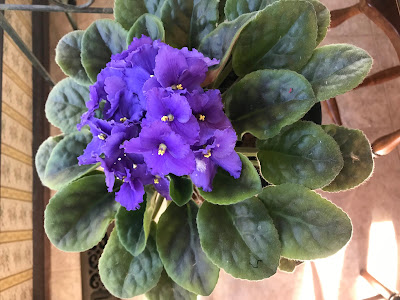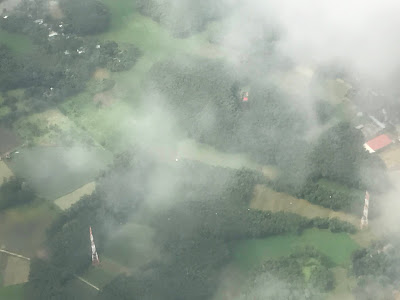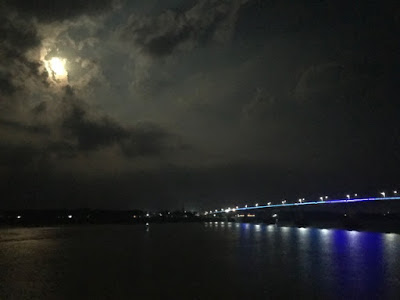The Annual Reports
My desk accessories and headset are in the car. The monitor is parked in the basement, ready to go. I’ll wipe my computer on Friday and take it into the office, too. Then all that remains will be … the annual reports. They were in the car, stationed for return along with the stapler and the tiered folder rack, but I had to bring them back inside because I needed to research a scholarship that began in 1993.
Now that they’re back in the house (and a heavy load they are, too!), I don’t want to let them go. I’ve built a complete set, you see, from 1985 to the present, which ranges from the time when Tom worked for Winrock to the time that I do. It’s a history of the place in a nutshell, a place I first experienced when I moved from Manhattan to a mountaintop in Arkansas right after we married and which has enriched my own career and life experiences beyond measure.
So I asked Tom last night: “Do you think it’s a bad sign that I can’t let go of the annual reports?” He just smiled and said to do whatever I think is right. He can’t really quibble about my packrat tendencies since he’s a primo packrat himself, and he knows this is about more than being a packrat. It’s about loving an organization I’m about to leave.
I do love Winrock. And yet on Friday I’ll type my last words for them and sign off the network for the last time. Because there’s something I love more, which is the freedom to write what I want when I want. It’s an awesome and a terrifying freedom, but I’ve earned the chance to try it, so I will.
As for the annual reports, they’re sitting in the hallway. I’m still thinking about them.
